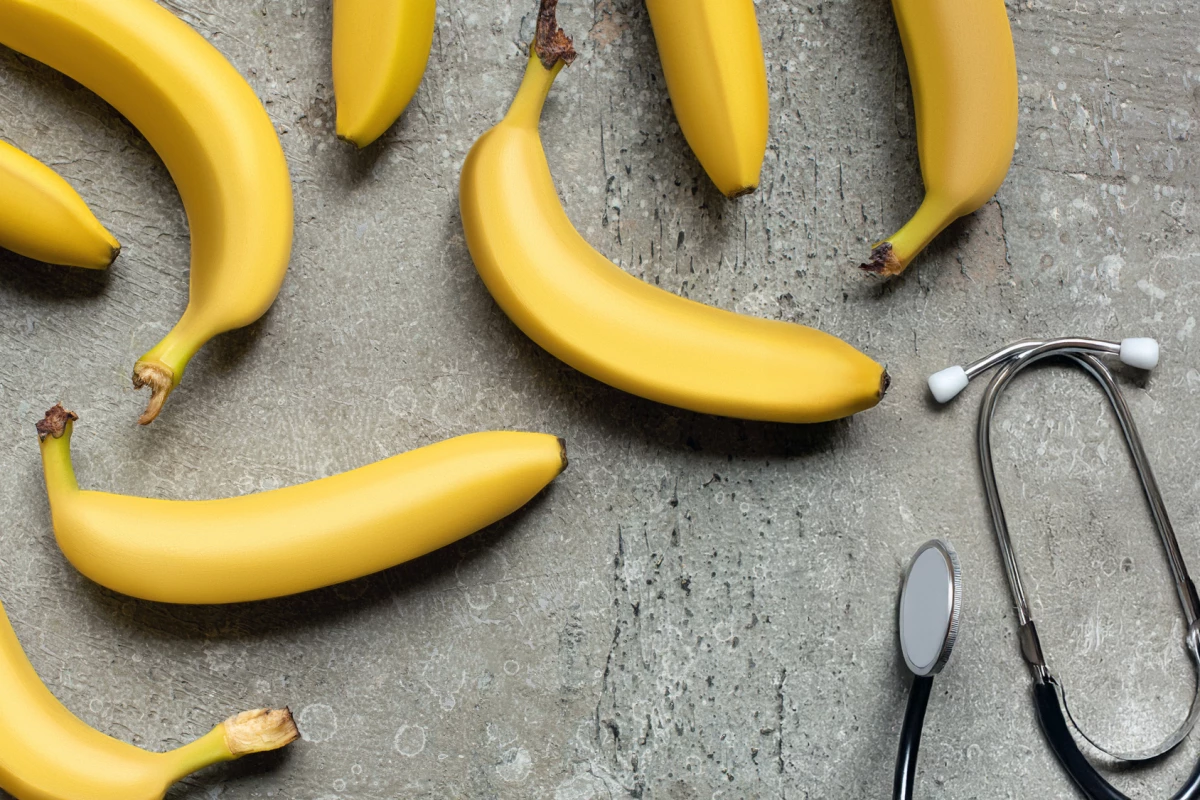While cutting back on salt intake has long been a mainstay in treating high blood pressure, new research suggests that upping potassium intake might have a greater effect. It might be time to stock up on bananas, apricots, and sweet potatoes.
It’s estimated that around 30% of the world’s population has high blood pressure, or hypertension, the number one cause of heart disease and premature death. For decades, institutions like the American Heart Association have touted the benefits of reducing sodium intake as a quick and easy way of lowering blood pressure.
However, new research by the University of Waterloo, Canada, suggests that increasing dietary potassium intake might affect blood pressure more than lowering sodium.
“Usually, when we have high blood pressure, we are advised to eat less salt,” said the study’s corresponding author, Dr Anita Layton, Professor of Applied Mathematics, Computer Science, Pharmacy and Biology at Waterloo and the Canada 150 Research Chair in Mathematical Biology and Medicine. “Our research suggests that adding more potassium-rich foods to your diet, such as bananas or broccoli, might have a greater positive impact on your blood pressure than just cutting sodium.”
Sodium and potassium are electrolytes that play a role in blood pressure regulation. In addition to supporting nerve and muscle function, sodium helps regulate bodily fluids. It attracts water, so if there’s too much sodium in the body, the body retains water to balance it out. This increases the volume of blood in the blood vessels, which makes the heart pump harder and results in high blood pressure. Potassium helps blood vessel walls relax, supports heart function, and also helps nerves and muscles. It works against sodium, helping the kidneys excrete sodium through the urine. This reduces fluid volume and pressure in the blood vessels, lowering blood pressure.
“Early humans ate lots of fruits and vegetables, and as a result, our body’s regulatory systems may have evolved to work best with a high-potassium, low-sodium diet,” said lead author Melissa Stadt, a PhD candidate in Waterloo’s Department of Applied Mathematics. “Today, Western diets tend to be much higher in sodium and lower in potassium. That may explain why high blood pressure is mainly found in industrialized societies, not in isolated societies.”
Layton and Stadt used a mathematical model to analyze how these two important electrolytes affected blood pressure. These models are a simplified version of reality, created using equations, numbers and logic to help us understand, predict, or control something in the real world. In this case, they started with a real-world problem (hypertension), identified important variables (sodium, potassium), and created equations to show how they interacted. Using data (normal and high sodium and potassium intakes, as well as sex), they made predictions and tested “what if” questions.
Using their model, the researchers identified how the ratio of potassium to sodium impacted blood pressure. They also identified how sex affects the relationship between potassium and blood pressure. Men, they found, more easily developed hypertension than pre-menopausal women, but they were also more likely to respond positively to an increased potassium-to-sodium ratio.
“Although the relationship between excessive dietary Na+ [sodium] intake and elevated blood pressure is well-accepted among the public, the beneficial effects of higher dietary K+ [potassium] intake have historically received less attention,” the researchers said. “Indeed, the dietary Na+-to-K+ ratio was found to be a stronger predictor for blood pressure, risk of cardiovascular disease, and all-cause mortality, than dietary Na+ or K+ alone. Consistent with these observations, model simulations indicate dietary K+ has blood pressure-lowering benefits even in the presence of normal-to-high dietary Na+.”
The study was published in the American Journal of Physiology – Renal Physiology.
Source: University of Waterloo





